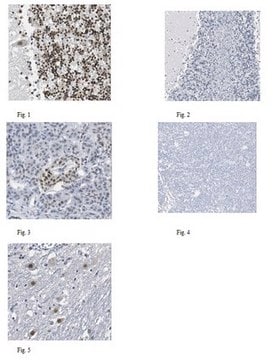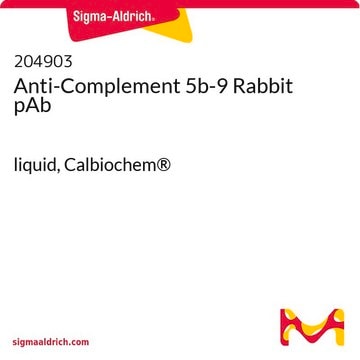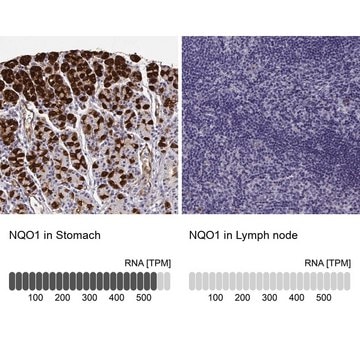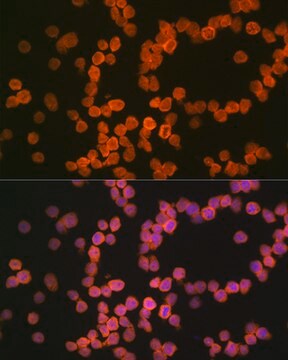MAB1275
Anti-HLA-ABC Common Antibody, clone 22.63.4
clone 22.63.4, Chemicon®, from mouse
About This Item
Recommended Products
biological source
mouse
Quality Level
antibody form
purified antibody
antibody product type
primary antibodies
clone
22.63.4, monoclonal
species reactivity
human
manufacturer/tradename
Chemicon®
technique(s)
flow cytometry: suitable
immunocytochemistry: suitable
immunohistochemistry: suitable
isotype
IgG2b
NCBI accession no.
UniProt accession no.
shipped in
wet ice
target post-translational modification
unmodified
Gene Information
human ... HLA-A(3105)
Related Categories
General description
Specificity
Cell reactivity:
The antibody reacts with all cells having HLA-ABC surface antigen. Erythrocytes and K562 and DAUDI are negative.
Immunogen
Application
Inflammation & Immunology
Immunoglobulins & Immunology
SUGGESTED USAGE DILUTION
1. Flow cytometry and indirect immunofluorescence 1:15 - 1:60
Dilute with isotonic buffer. Use 50 μl of diluted antibody per 1 x 10E6 peripheral blood mononuclear cells (PBMC) in 100 μl buffer.
2. Indirect immunoperoxidase staining - the final dilution will depend on the assay conditions and detection system employed. However, a dilution of at least 1:15 will be applicable to most commonly used systems.
Linkage
Physical form
Storage and Stability
WARNING: The monoclonal reagent solution contains 0.05% sodium azide as a preservative. Due to potential hazards arising from the build up of this material in pipes, spent reagent should be disposed of with liberal volumes of water.
Other Notes
Legal Information
Disclaimer
Not finding the right product?
Try our Product Selector Tool.
Storage Class Code
12 - Non Combustible Liquids
WGK
WGK 2
Flash Point(F)
Not applicable
Flash Point(C)
Not applicable
Certificates of Analysis (COA)
Search for Certificates of Analysis (COA) by entering the products Lot/Batch Number. Lot and Batch Numbers can be found on a product’s label following the words ‘Lot’ or ‘Batch’.
Already Own This Product?
Find documentation for the products that you have recently purchased in the Document Library.
Our team of scientists has experience in all areas of research including Life Science, Material Science, Chemical Synthesis, Chromatography, Analytical and many others.
Contact Technical Service







